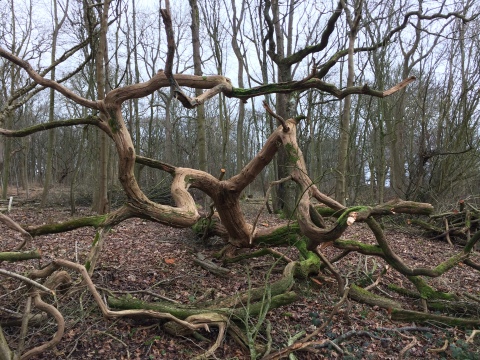Reading: The Found and the Lost
Jan. 5th, 2020 05:42 pmThe Found and the Lost collects together thirteen of Ursula Le Guin's novellas. (I'm not entirely clear whether this is absolutely every novella-length story she ever published, or just a selection.) I've had my copy for several years but was put off reading it because it is very large - a hardback with 800 pages, printed on heavy paper - so I thought I'd seize the opportunity to read it while I was off work and didn't have to attempt to carry it around with me.
I realised when I looked at the table of contents that I'd read seven of the thirteen stories quite recently; the collection includes three of the four stories from Four Ways to Forgiveness, three of the stories from Tales from Earthsea and the title story of A Fisherman of the Inland Sea, as well as 'Vaster Than Empires And More Slow' from The Wind's Twelve Quarters, which I read several times when I was in my teens. (I also realised, looking through my other Le Guin books while re-shelving this, that three more of the stories are in The Birthday of the World, which I own but haven't read yet - if you have a substantial Le Guin collection it's worth considering whether The Found and the Lost is really value for money.) I had originally planned not to re-read the stories I'd read in the last couple of years, but it felt like cheating to say I'd read the book if I'd actually only read less than half of it, and Le Guin's writing is always worth re-reading, so in the end I read the collection straight through.
As well as the Earthsea and Hainish stories, the novellas collected here include the non-SFF 'Hernes', the story of four generations of women living in a coastal town in Oregon; 'Buffalo Gals, Won't You Come Out Tonight', which uses Native American mythology to look at the disconnect between modern culture and nature; and 'Paradises Lost', possibly my favourite, which is set on a generation ship five generations into its voyage, where many of the descendents of the original travellers are beginning to question the need for a destination. Told as a series of vignettes centred around two characters who have known each other since early childhood, it's a haunting, thoughtful story which feels perfectly complete in itself but still leaves me wishing there was more about these people and their journey. I also very much liked 'The Matter of Seggri', a novella set in the Hainish universe which uses an initially simplistic-seeming reversal of gender roles in the society it describes to raise questions about gender equality more widely. Of the stories I'd read before, 'Dragonfly', which is the final story from Tales of Earthsea, particularly stood out this time round for its engagement with the question of conservative backlash against change, and the way change, and the response to it, splits communities. Despite first being published in 1998, it felt very contemporary.
I realised when I looked at the table of contents that I'd read seven of the thirteen stories quite recently; the collection includes three of the four stories from Four Ways to Forgiveness, three of the stories from Tales from Earthsea and the title story of A Fisherman of the Inland Sea, as well as 'Vaster Than Empires And More Slow' from The Wind's Twelve Quarters, which I read several times when I was in my teens. (I also realised, looking through my other Le Guin books while re-shelving this, that three more of the stories are in The Birthday of the World, which I own but haven't read yet - if you have a substantial Le Guin collection it's worth considering whether The Found and the Lost is really value for money.) I had originally planned not to re-read the stories I'd read in the last couple of years, but it felt like cheating to say I'd read the book if I'd actually only read less than half of it, and Le Guin's writing is always worth re-reading, so in the end I read the collection straight through.
As well as the Earthsea and Hainish stories, the novellas collected here include the non-SFF 'Hernes', the story of four generations of women living in a coastal town in Oregon; 'Buffalo Gals, Won't You Come Out Tonight', which uses Native American mythology to look at the disconnect between modern culture and nature; and 'Paradises Lost', possibly my favourite, which is set on a generation ship five generations into its voyage, where many of the descendents of the original travellers are beginning to question the need for a destination. Told as a series of vignettes centred around two characters who have known each other since early childhood, it's a haunting, thoughtful story which feels perfectly complete in itself but still leaves me wishing there was more about these people and their journey. I also very much liked 'The Matter of Seggri', a novella set in the Hainish universe which uses an initially simplistic-seeming reversal of gender roles in the society it describes to raise questions about gender equality more widely. Of the stories I'd read before, 'Dragonfly', which is the final story from Tales of Earthsea, particularly stood out this time round for its engagement with the question of conservative backlash against change, and the way change, and the response to it, splits communities. Despite first being published in 1998, it felt very contemporary.
